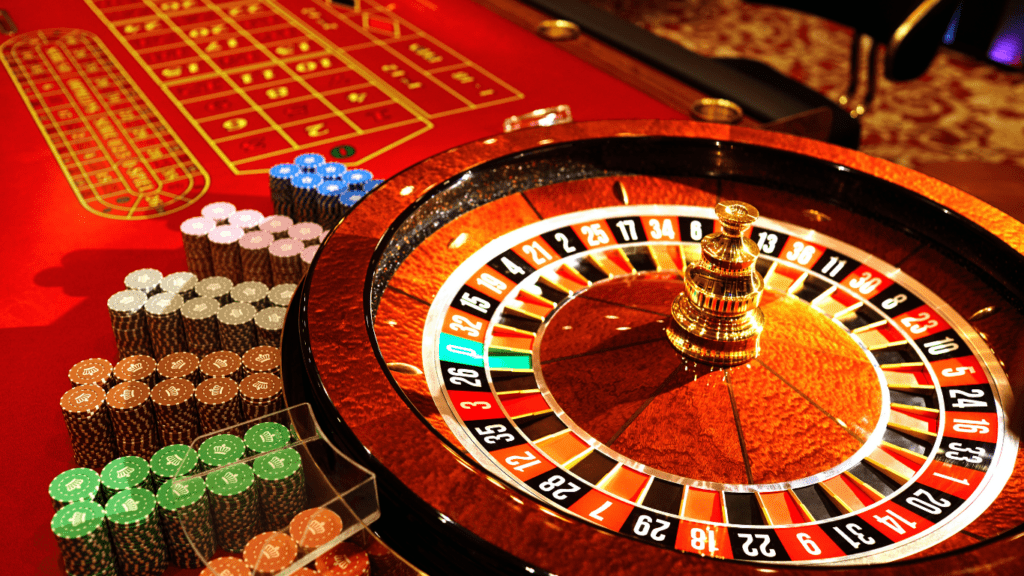Have you ever wondered if timing matters when it comes to hitting the jackpot? I’ve often thought about whether playing at specific times could boost my chances of winning. It’s a question that’s sparked curiosity among gamblers and casual players alike.
Some believe there’s a “sweet spot” during the day or week when luck seems to favor the bold. Others argue it’s all about pure chance, no matter when you play. But what if there’s more to it? Exploring how timing might influence jackpot odds could uncover patterns or strategies worth considering.
Understanding the Concept of Timing in Gambling
Timing in gambling refers to the idea that specific hours, days, or patterns might affect game outcomes. Some players associate timing with increased jackpot chances, assuming casinos manipulate game odds during certain periods. However, most gambling systems rely on Random Number Generators (RNGs), ensuring unpredictable outcomes.
Peak hours often see higher jackpot payouts due to increased player activity. A busy casino floor means more bets, accelerating prize-building pools and payouts in games like progressive slots. Conversely, off-peak hours might feel quieter but offer fewer wins because fewer players contribute to the pot.
Daily or seasonal events can also impact game dynamics. Events like:
- weekend promotions
- holiday bonuses
often draw larger crowds, raising stakes and jackpots. However, these scenarios occur because of volume, not timing-driven odds changes.
While some gamblers claim personal success by playing at specific times, such patterns lack statistical backing. Analyzing casino mechanics highlights that jackpot timing mostly aligns with player behavior, not coded predictability or deliberate design.
Theories Behind Timing and Jackpot Wins

Exploring the theories about timing and jackpots reveals both randomness and belief-driven patterns. These perspectives shape how players perceive their chances of winning.
The Role of Randomness in Games of Chance
- Jackpot games rely on Random Number Generators (RNGs) to ensure fairness.
- RNGs generate unpredictable outcomes by using algorithms that simulate randomness, eliminating patterns.
- Winning isn’t influenced by time since RNGs determine results independently of when players engage.
- This lack of predictability maintains casino integrity and makes timing irrelevant in determining odds.
- The number of players active at a given time may lead to more jackpots during peak hours, but this stems from higher frequencies of play rather than a programmed increase in payouts.
- Casinos regulate payouts only through payout percentages set over time, not specific intervals, further emphasizing the role of randomness.
Popular Beliefs Around Lucky Times
Many gamblers adhere to the idea of “lucky times.” Some consider early mornings advantageous due to quieter settings or believe weekends bring better chances of winning, thinking casinos increase payouts during crowded periods. Others prefer specific dates like holidays, aligning their play with events they associate with luck.
These beliefs persist despite the lack of evidence. Gamblers often attribute wins during such times to timing, ignoring that wins are probabilistic events. Patterns may appear due to human tendencies to find connections, but these aren’t statistically relevant in systems governed by random outcomes.
Analyzing Data: Does Timing Actually Matter?
Timing in gambling sparks debates, with questions about its impact on jackpot likelihood remaining prominent. Examining research studies and real-life experiences uncovers key insights.
Studies on Jackpot Probability Over Time
Research into gambling patterns explores the relationship between timing and jackpot outcomes. Studies confirm that most games of chance use Random Number Generators (RNGs), which produce results independently of external factors, like time of day. For instance, a 2020 study analyzing slot machine payout frequencies across different hours found no evidence linking payout ratios to specific times, reaffirming that randomness governs results. However, research has noted indirect timing effects, as increased player activity during peak hours escalates overall jackpot occurrences due to higher play volume rather than timing-induced advantages. These conclusions stress that timing doesn’t alter win odds but can influence jackpot frequency indirectly.
Real-Life Examples and Anecdotes
Some gamblers share personal stories suggesting timing impacts winnings. A common account involves larger jackpots being hit during evenings or weekends when casinos are busier. Though these observations align with statistical increases caused by peak playtimes, they don’t indicate intentional manipulation or improved odds during these moments. For example, several Las Vegas players claim to experience “luckier streaks” during off-peak hours due to quieter environments but overlook the fact that RNG outcomes are unaffected by timing or external surroundings. Such anecdotes highlight how perception, rather than evidence, often fuels beliefs about timing and jackpots.
Tips for Optimizing Your Gameplay
Optimizing gameplay requires a mix of timing strategies and responsible habits. These tips focus on maximizing enjoyment and potential outcomes while maintaining control.
Finding the Best Times to Play
Analyzing player activity can highlight advantageous periods. Peak hours, such as evenings or weekends, often coincide with higher jackpot payouts due to increased player volume. If a substantial jackpot pool is a priority, playing during these times offers more frequent opportunities to witness payouts. Conversely, off-peak hours provide quieter gameplay with less competition, which may be preferable for focusing on strategies without distractions.
Tracking promotional events or special offers can also provide insights into ideal times. Many casinos run limited-time bonuses, including holiday specials or mid-week promotions, to attract players. Monitoring these events ensures better value for gameplay.
Balancing Fun and Responsible Gaming
Maintaining a balance between gameplay and financial limits ensures a positive experience. Allocating a fixed budget for games prevents overspending and encourages disciplined decisions. Dividing funds across multiple sessions stretches playtime and minimizes losses in one sitting.
Prioritizing enjoyment over constant wins enhances the gaming experience. By viewing jackpots as potential, not guaranteed, outcomes, the pressure to chase losses diminishes. Regular breaks between sessions help maintain focus and avoid burnout, ensuring enjoyment remains the central goal of gameplay.



 Norman Luke is a passionate content creator and sports analytics enthusiast, dedicated to delivering engaging and insightful articles for JackpotRollZone. With a deep understanding of the intersection between sports and technology, Norman brings the latest trends, tips, and innovations to readers. His writing reflects his commitment to keeping sports fans informed and empowered with data-driven insights.
Norman Luke is a passionate content creator and sports analytics enthusiast, dedicated to delivering engaging and insightful articles for JackpotRollZone. With a deep understanding of the intersection between sports and technology, Norman brings the latest trends, tips, and innovations to readers. His writing reflects his commitment to keeping sports fans informed and empowered with data-driven insights.
